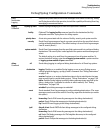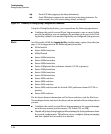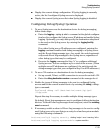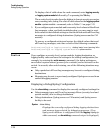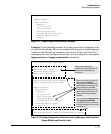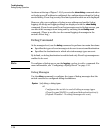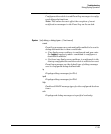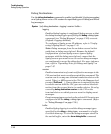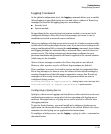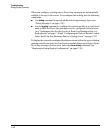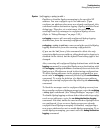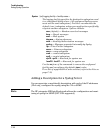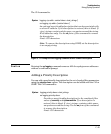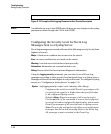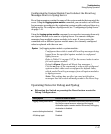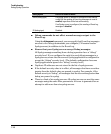
Troubleshooting
Debug/Syslog Operation
Logging Command
At the global configuration level, the logging command allows you to enable
debug logging on specified Syslog servers and select a subset of Event Log
messages to send for debugging purposes according to:
■ Severity level
■ System module
By specifying both a severity level and system module, you can use both
configured settings to filter the Event Log messages you want to use to
troubleshoot switch or network error conditions.
Caution After you configure a Syslog server and a severity level and/or system module
to filter the Event Log messages that are sent, if you save these settings to the
startup configuration file by entering the write memory command, these debug
and logging settings are automatically re-activated after a switch reboot or
power recycle. The debug settings and destinations configured in your
previous troubleshooting session will then be applied to the current session,
which may not be desirable.
After a reboot, messages remain in the Event Log and are not deleted.
However, after a power recycle, all Event Log messages are deleted.
If you configure a severity level and/or system module to temporarily filter
Event Log messages, be sure to reset the values to their default settings by
entering the no form of the following commands to ensure that Event Log
messages of all severity levels and from all system modules are sent to
configured Syslog servers:
ProCurve(config)# no logging severity < debug | major | error | warning | info>
ProCurve(config)# no logging system-module < system-module >
Configuring a Syslog Server
Syslog is a client-server logging tool that allows a client switch to send event
notification messages to a networked device operating with Syslog server
software. Messages sent to a Syslog server can be stored to a file for later
debugging analysis.
To use the Syslog feature, you must install and configure a Syslog server
application on a networked host accessible to the switch. Refer to the docu-
mentation for the Syslog server application for instructions.
To configure a Syslog server, use the logging < syslog-ip-addr > command as
described below.
C-41



